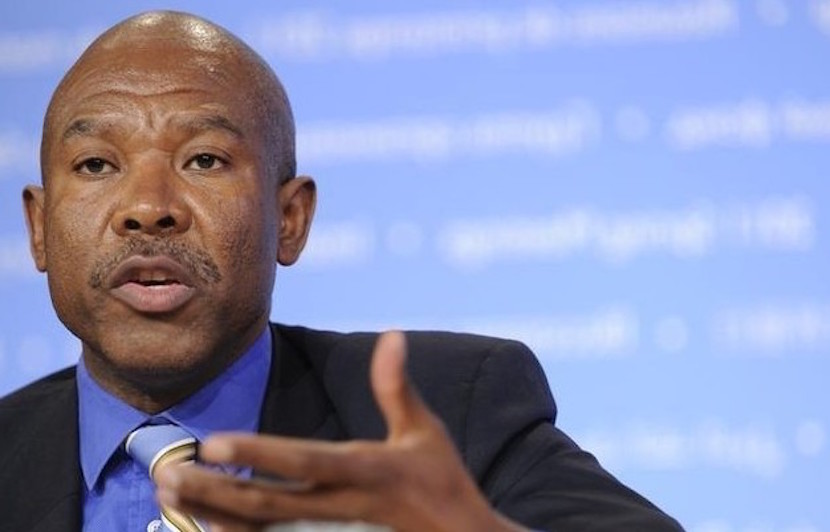If one thinks President Jacob Zuma finds himself caught between a rock and a hard place, then what about the South African Reserve Bank governor Lesetja Kganyago. The monetary policy mandate is to keep inflation in check, within the target band of 3-6%. Inflation currently sits outside this band, and traditional theory points to another rate hike. But given the economy is on the brink of a recession, the simple decision is not necessarily the easy one. Brian Kantor has repeatedly sounded the horn that rising interest rates wouldn’t combat inflation, as it’s fuelled by external factors, and the focus should be on the economy. And while most arrows point to a brake on interest rate hikes tomorrow, Kganyago’s reasoning may not be on the same page as Kantors. – Stuart Lowman
by Xola Potelwa
(Bloomberg) — South African borrowers may be spared higher interest rates on Thursday as central bank Governor Lesetja Kganyago juggles the fight against inflation with an economy at risk of slipping into a recession.
Factory and mining output, which together account for about a fifth of gross domestic product, contracted in March and unemployment surged to the highest in at least eight years in the first quarter. Sluggish economic growth is a key risk to the nation’s credit rating, with S&P Global Ratings and Fitch Ratings Ltd. reviewing their assessments, currently at the lowest investment-grade level, in the next two weeks.

The Reserve Bank “risks now becoming, in their words, an inflation nutter, if they hike too much. The economy is not just weak, it’s excessively weak,” Colen Garrow, chief economist at Lefika Securities, said by phone from Johannesburg on Monday. “The probability of recession is now huge.”
Only six of 25 economists in a Bloomberg survey said they expect a third increase in interest rates this year. Forward-rate agreements starting in one month, used to speculate on borrowing costs, show traders are pricing in a probability of less than 50 percent that the Monetary Policy Committee will increase borrowing costs by 25 basis points. This even as they’ve more than doubled their bets since May 13 after the rand fell to a two-month low on Monday following a report citing unidentified people in the Sunday Times that Finance Minister Pravin Gordhan could be charged with espionage and fired.
While a government report on Wednesday will probably show annual inflation slowed to 6.2 percent last month from 6.3 percent in March, according to the median of 25 economist estimates compiled by Bloomberg, the five-year breakeven rate, a measure of bond investors’ price expectations, rose 24 basis points this month to 7.42 percent, the highest since Jan. 21, as the rand slid 8.5 percent against the dollar. The central bank forecasts price growth will only slow back into its 3 percent to 6 percent target band by the fourth quarter of next year.
Read also: Assume brace position: SARB warns “junk” status coming, how it will hurt us
The Reserve Bank can best serve the South African economy by ensuring price stability, even if higher interest rates affect growth over the short term, Deputy Governor Daniel Mminele said in an interview in the Rwandan capital, Kigali, last week. Africa’s most industrialized economy will probably expand less than 1 percent this year, the slowest pace since the 2009 recession, according to the central bank. The MPC has raised its benchmark repurchase rate by 125 basis points to 7 percent since July.
“We know the Reserve Bank is a very reluctant interest rate hiker amid a soft growth environment,” Manisha Morar, an economist at ETM Analytics, said by phone from Johannesburg. “Should the rand start to strengthen and inflation expectations dissipate to a degree which the Reserve Bank considers appropriate, we could see the bank start to exude a less hawkish stance.”
Read also: Maynard: SARB’s tightrope – Protecting vulnerable Rand or controlling inflation?
The rand’s 26 percent fall against the dollar since the start of last year has added to price pressures caused by the worst drought in more than a century. The currency slumped 1.2 percent to 15.7346 per dollar as of 9:05 a.m. in Johannesburg. Yields on rand-denominated government bonds due 2016 rose eight basis points to 9.46 percent. South African bonds have lost 11 percent this month, the most among local-currency bonds for 31 emerging markets tracked by Bloomberg.
“With the figures in the economy being as weak as they have been, unemployment, mining, manufacturing production, I think they’ll want to hold things off,” John Ashbourne an economist at Capital Economics Ltd., said by phone from London. “It would be very painful at this point to raise interest rates.”

